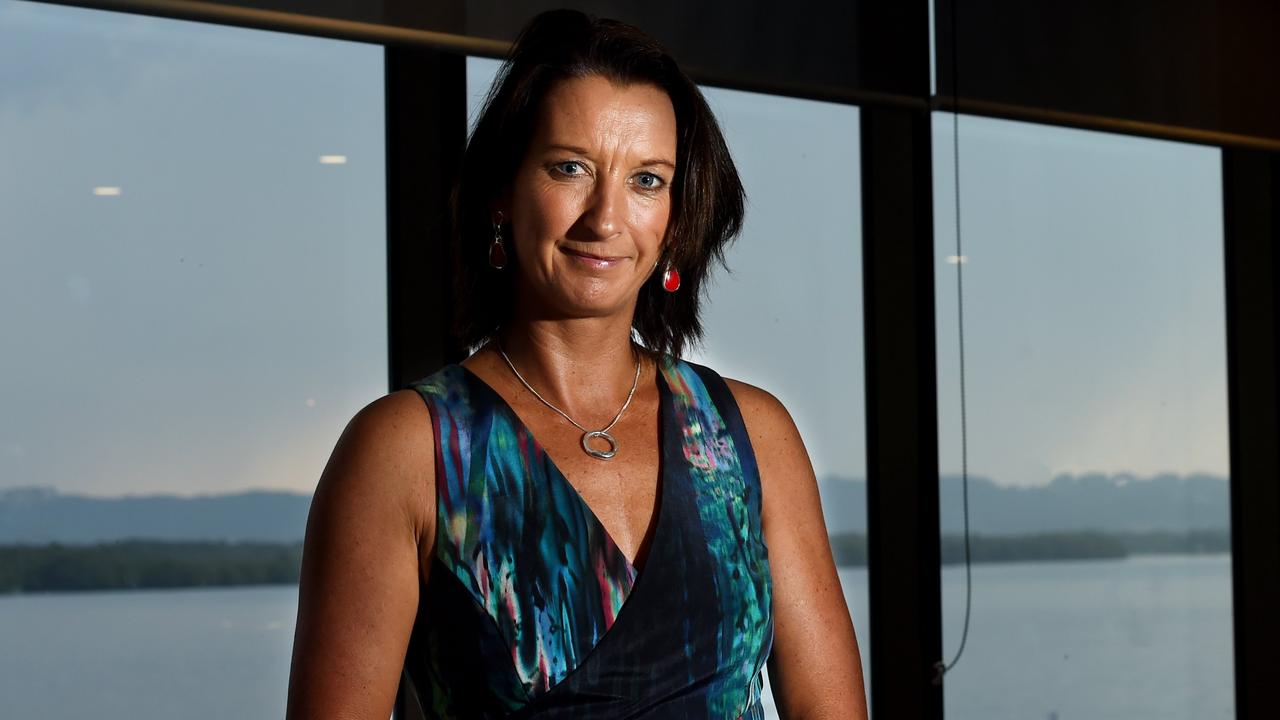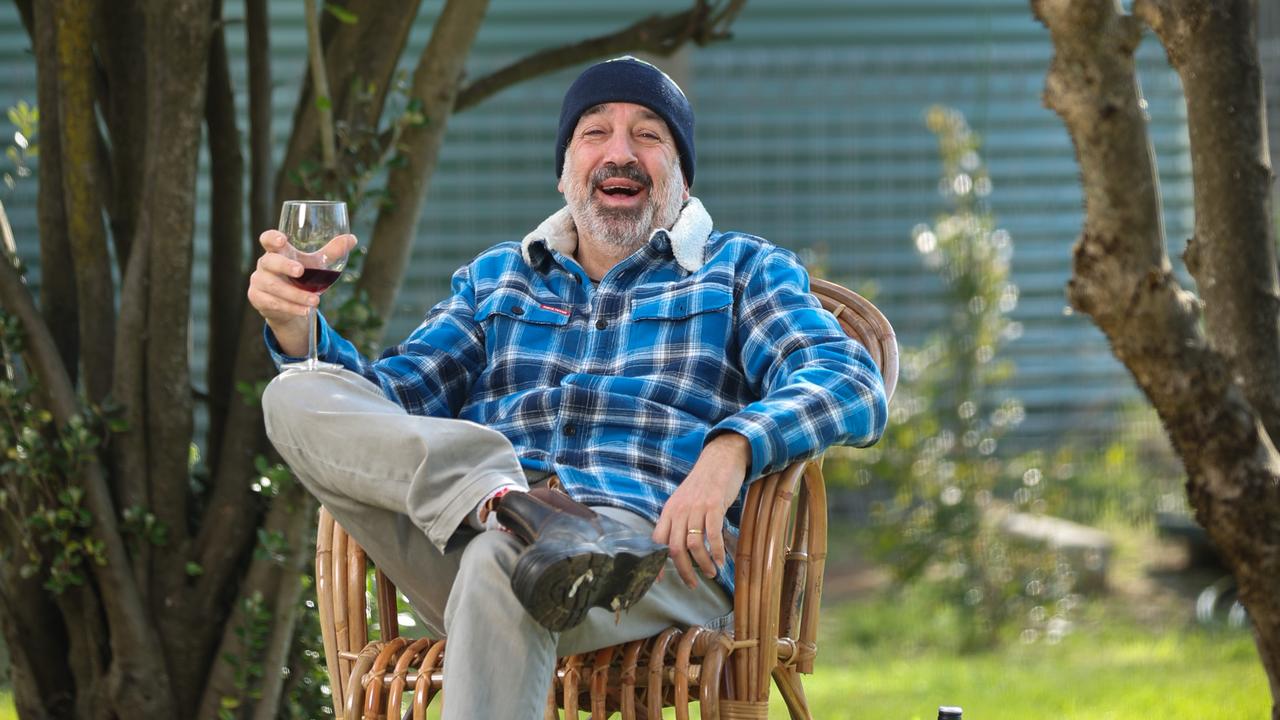Young Sydney corporates taking a break from the rat race for gap year travel
A ‘gap year’ is not so much about school leavers backpacking and bar hopping their way through cheap countries these days – a new wave of young professionals are putting a pause on their careers to redefine the term.
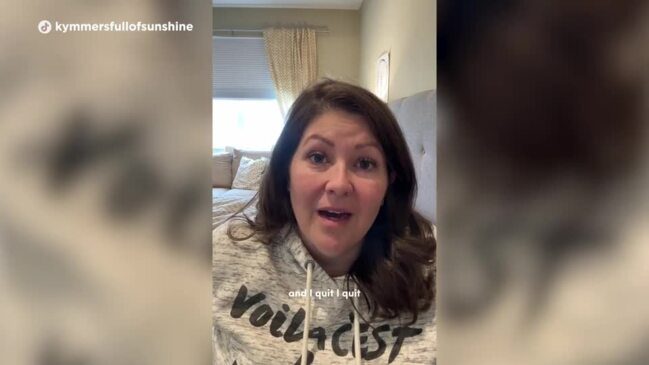
VWeekend
Don't miss out on the headlines from VWeekend. Followed categories will be added to My News.
Holidays and international trips were often the first things to be sacrificed as a 20-something, with first homes, mortgages and corporate ladder-climbing taking priority.
But a new generation of young corporates is taking time away from the rat race to travel the world – ticking off bucket list experiences like climbing volcanoes and swimming with whales.
The term “gap year” often conjures thoughts of 18-year-old high school graduates running from their impending responsibilities, partying and bar crawling their way across foreign countries. But instead of budget hostels, heavy backpacks and cheap drinks, corporates across Sydney are taking 12 months away from the grind to travel to dream destinations.
When life started to return to normal post-pandemic, 28-year-old Danielle Bracamonte couldn’t shake the urge to travel. Stuck at home for over a year and still in a work-from-home bubble, she was suffering from a severe case of wanderlust.
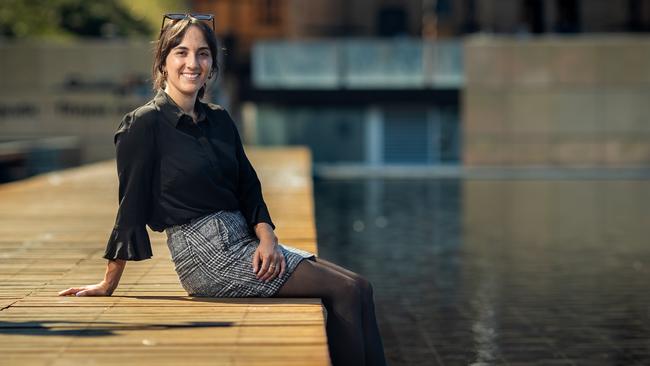
With Italian heritage, she’d always wanted to return to her grandparents’ home and learn more of the language – with grand plans to spend a year abroad hopping from one country to the next.
But working in corporate human resources for a major company, she wasn’t sure the timing was right. “I went to uni and then my career started almost immediately after,” she says.
“I knew that the timing in terms of life was perfect, I don’t have any real responsibilities like a house or kids, but I was more reserved because of work.”
So after a frank discussion with her manager – who also doubled as a mentor – her dilemma was quickly solved. “I asked if he thought it would affect my career and he basically said, ‘Go for it’,” Bracamonte says.
And while daunting, this very conversation is one being had by corporates across Australia in recent years.
Founder and managing director of Humanify HR Consulting Sarah Queenan says workplaces are becoming more accepting of extended leave and sabbaticals following the pandemic.
“In Australian workplaces, there is often a ‘work at all costs culture’ that prevails. During the pandemic, people had the opportunity to reassess the ‘costs’ associated with the way we work,” she says.

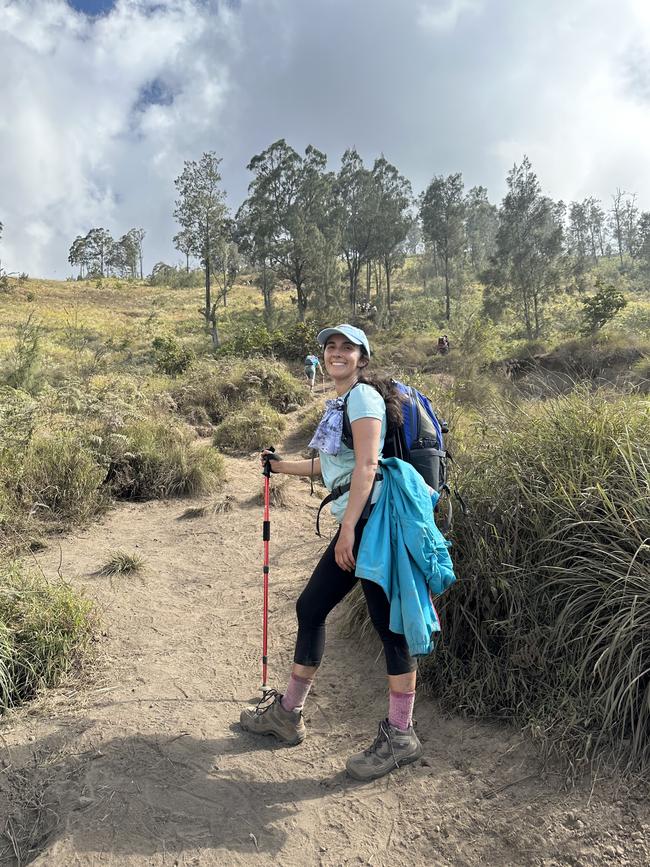
“People want to work to live, not live to work.
“This doesn’t mean that they are not willing to put in the effort required to perform a job well, it simply means that it is no longer acceptable for work to overwhelm people to the point that it has negative impacts on their overall quality of life.
“Employers are getting better at recognising this and taking proactive steps to reimagine the way we work.
“To retain talent, we are seeing great employers being more open to flexible work options, considering sabbatical leave and a range of other health and wellbeing initiatives.”
With one year of leave without pay granted by her company, Bracamonte quickly moved out of her Sydney apartment and began planning her adventure of a lifetime.
A YEAR TO REMEMBER
The plan was simple: there wasn’t really a plan. “It was all about exploring,” she says.
With years of corporate work and savings behind her, she was able to experience places and things she wouldn’t have had the opportunity to do had she had a gap year at 18.
“I had the freedom to do whatever I wanted,” she says. “I just wanted to enjoy life.”
With that freedom she checked off 12 countries in 12 months.
She did things most people couldn’t do in a lifetime in just one year – climbing Mt Rinjani (a volcano in Indonesia), swimming with humpback whales, exploring ice caves, free diving, and seeing the Northern Lights.
The first stop on her trip: Italy. The aim of her time in Italy was to “reconnect to my roots”, and develop her language skills.
At a beautiful bed and breakfast in the hills of Tuscany she spent six weeks making everything from beds to bread and jam, working in the gardens and adjusting to life at a slower pace.
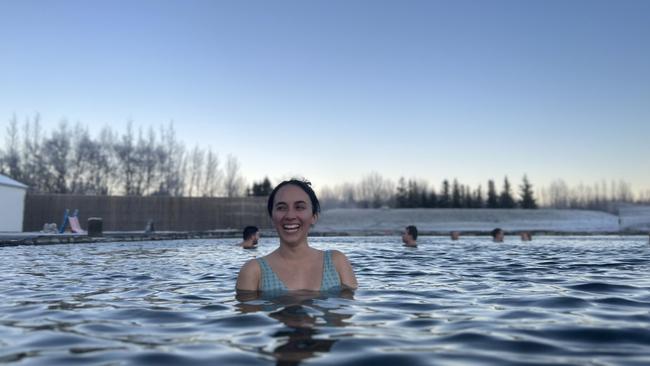
From Italy she jumped to Portugal and then to Iceland where she swam between the North American and Eurasian tectonic plates, saw the Northern Lights and visited ice caves.
By Christmas time she’d ticked off the United Kingdom and spent winter by the fire in snowy Finland.
“I wanted a snowy Christmas,” she says. “I mean the whole month of Christmas, and I got that. It was a dream.”
Switzerland, North Africa, Malta, Indonesia and Tonga followed. In Indonesia, she climbed Mt Rinjani – harder than Everest Base Camp, she says from experience – and spent days recovering at a resort afterwards.
“It was the hardest thing I’ve done in my life. I will never do it again,” she says. “You walk up a few steps and you’re sliding back the whole time. It’s draining because I felt like I wasn’t moving anywhere.”
But perhaps the most memorable moment of her year abroad was swimming with humpback whales in Tonga with her brother Joe. It had been planned for years but repeatedly cancelled due to the pandemic, however eventually slotted in perfectly with Bracamonte’s gap year.
“There were a lot of happy tears – the whales are very curious and it was completely surreal being able to see these gentle giants up close,” she says. “It’s one of many experiences that has made me fall more in love with the ocean.” And while you’d expect a few homesick or lonely moments when travelling alone, for Bracamonte – there were very few, if any.
The moment she realised she had left her backpack on a train caused minor panic which quickly dissipated when she discovered it had been handed in to lost and found.
Navigating North Africa for the first time was initially daunting, but she quickly eased in, and consistent FaceTime calls with her family and friends kept her connected.
The hardest part of the trip, however, was the ending, and readjusting to life back behind a desk in the Harbour City.
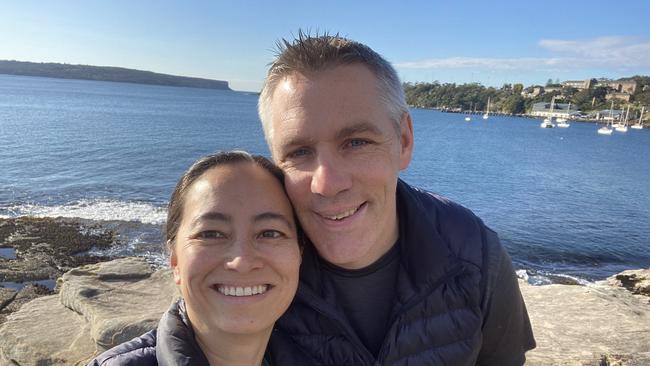
BACK TO REALITY
“It’s definitely hard coming back but I’ve learnt how to slow down and appreciate things a little more,” she says. “If (a trip) is something you’ve been thinking about doing and you’re able to, I’d say go for it. This has been the biggest investment I’ve made in my life, one I know I’ll never regret.”
Cian McLoughlin has the same view, after leaving his job in IT to travel with his now wife Shelley-Anne.
Unlike Bracamonte, he didn’t have the safety net of a job to return to, with his company telling him that if there was a job when he returned, they’d rehire him.
It was 2006 at the time, and while the “adult gap year” was largely unheard of, his managers were supportive of his decision.
Both he and his wife were well travelled, but hadn’t explored the world together – so decided to pack their bags and head to South America before their impending nuptials.
International roaming and overseas sims were a thing of the future at the time, and the couple relied on Lonely Planet guides to dictate their plans.
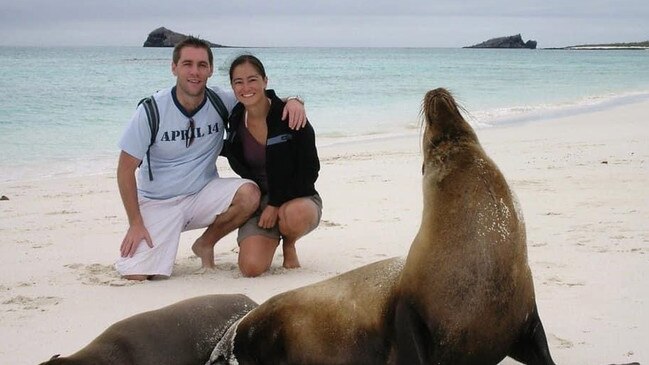
Those little guides led them all over Europe, South and Central America, from Belize to the Galapagos Islands and Ireland to Sweden.
“It’s crazy looking back now,” McLoughlin says. “We were literally flicking to the next chapter in the Lonely Planet and going, ‘Okay, we’re about to go to this new country.’”
The nature of his travel was a little more “hair-raising” than Bracamonte’s – with moments when he and his partner were “taking life into their hands a little bit”.
That included Shelley-Anne slipping down an icy volcano and a scuba diver in their group running out of oxygen while in the Galapagos.
But the good moments far outweighed the bad – and their year of travel taught them things they could use back in their lives at home.
“It actually gave us a clear focus on how to save,” McLoughlin says.
“We were effectively saving first, and then we’d pay all our bills second and then whatever leftover was our disposable income for that particular month.”
While the average person may think taking a year off to travel without any income flowing in could ruin their chance of buying a home or advancing in their career – McLoughlin assures them it’s quite the opposite.
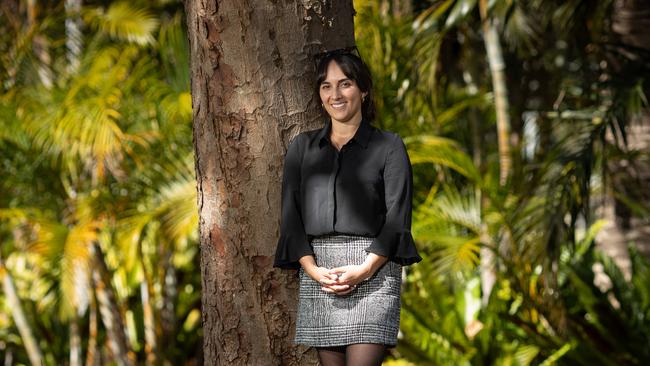
“Our gap year didn’t stop us from doing anything – instead it just framed how we were going to afford the things that we wanted to do immediately after our trip,” he says.
“You think stepping out for a year, ‘Oh my god, I’m gonna lose my place on the corporate ladder’ – but it actually isn’t the case at all.
“A year goes much faster for the people who are still in the corporate world.
“You don’t want to die with regrets and that was our philosophy. I think we came back being better people.”
More than a decade on from their world adventure, the McLoughlins have two children, and are trying to instil the same sense of adventure and wonder in them.
“There’s a big, wide world out there and we want them to get out there and explore it,” he says.
Meanwhile Queenan, Humanify HR Consulting founder, encourages people to be open with their employer about extended leave and sabbaticals – noting time off can be a good antidote to symptoms of burnout, which costs the Australian economy an estimated $14.81bn a year in lost productivity and absenteeism.
“We believe burnout is a smoke alarm in an organisation, a trigger to alert that something is not quite right,” Queenan says.
“There is a real need to shift the narrative around burnout, considering it is now being experienced by many. Burnout can impact anyone, at any point in their careers – it doesn’t discriminate.”
Got a news tip? Email weekendtele@news.com.au
More Coverage
Originally published as Young Sydney corporates taking a break from the rat race for gap year travel




